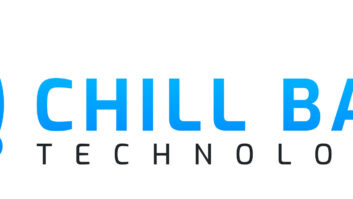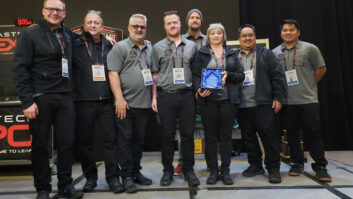New York – Yves Behar, founder of Fuseproject, an integrated design agency,
opened the Consumer Electronics Association’s (CEA)
event, held here this morning, on how efficient green products can
be highly desirable.
The designer, who has worked on
the
initiative, among several other environmentally friendly projects,
discussed how new designs for CE and other projects can be green, desirable and
in demand.
Behar said that there are three areas industrial designers
need to practice when designing green and environmentally friendly products.
“Pushing green notions should not be a constraint, but pushed that it is a sexy
part of a design.”
He noted that the “business of design” should go away
from “short-term engagements” with companies and develop “long-term engagements
… with long-term values” creating companies and products that “have
value.”
And designers, as well as manufacturers, should present the
notion that “new approaches are desirable” and will “create desirability” in
their products that will attract consumers.
He cited several examples in
a variety of industries; the most visible has been the One Laptop Per Child.
In that project there have been 1.4 million laptop distributed in the
$100 program since it began.
In Uruguay, children 6 to 12 years old
throughout the country get laptops from the program, and it will be expanded to
high schools. “That is the only thing that both presidential candidates in that
country agreed on in their campaign.”
Behar pointed out high school
students there will not get or want the green laptops younger students get. They
will get different-colored laptops, in response to peer fashions.
He
noted that when the One Laptop program started, many thought founder Nicholas
Negroponte “was insane … yet it has been successful.”
Behar said
laptops designed for the U.S. and other developed nations are “not designed for
you. Companies follow specs designed and picked by marketers” to satisfy the
manufacturers’ need to come up with laptops for as much of the public as
possible.
Behar said that in the One Laptop project, the design team
“learned how to build laptops more cheaply, that are more lightweight … but
the industry said consumers would not want that.” He added, “But with the
success of netbooks … consumers said they did.”
In the project, “the
most important thing throughout our work is that the laptops had to be designed
for kids.”
One Laptop has developed its third model, the XO3, which gives
children “a wide range of use.” They learned that children will want to use
tablet PCs, split-screen functions and the like. “Two people using a computer
screen at the same time is an interactive computer, not a personal computer.
That is the way people have always played.”
The One Laptop project
developed units with all plastic, including the screen. “We put a loop at the
edge of one of the laptops for kids to carry it. We emphasize thinness, – we
protect the edges with rubber to protect it. We do things that are typical
no-nos for the industry that push their buttons … but we get reactions from
the industry” to improve new and existing products for all.
The result
has been “the $100 laptop, designed for children, is the first time a product
designed for the developing world is wanted here” in the developed
world.
Behar also cited green designs by Jawbone Bluetooth headphones,
Mission Motors electric motorcycles that are highly designed and positioned
“unapologetically as the next big thing,” and Herman Miller LED lights that are
energy efficient and highly styled.
Among some of the other presenters
was Tom Hadfield, COO of the LoboGroup, who also spoke about the
. The purifier uses common house plants in a device that
has a fan to eliminate benzene, formaldehyde and other poisonous chemicals in
the air from common home furnishings 100 percent faster than a common house
plant at home.
Leo Bonanni was also there. Bonanni is founder and
director of Sourcemap.org, a social network and tool to find out life-cycle
assessment and supply-chain transparency for technology products and a wide
variety of consumer items.
The site shows maps of where laptop PCs parts,
materials and equipment come from, where they are shipped, and where they are
recycled around the world.
Visit
for a demonstration of this tool.













